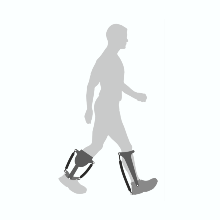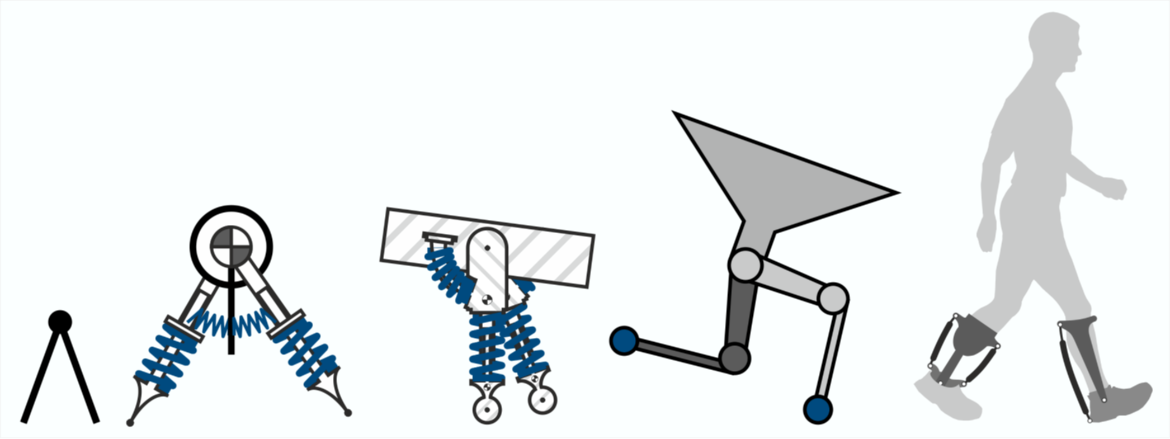- News:
-
Please note that starting SS 2022, this course will be a 6 ECTS course. If you are interested in a 3 ECTS version of just “Dynamics of Legged Locomotion”, please contact Prof. Remy via email.
- Lecturer:
- Assistant
- Lecture start:
-
09.04.2024
- Language:
-
English
- Course ID number:
-
340843100
- Time frame:
-
4 SWS, 6 LP
The overarching goal of this class is to provide students with an overview of the current state of the art in the field of dynamics and control of legged (robotic) systems. Subtopics range from basic biomechanics and locomotion in nature to optimal control of robotic systems. To this end, the course will apply the principles of mechanical dynamics to a specific class of systems and will hence cover a broad range of dynamics topics, including multibody-dynamics, non-smooth dynamics, nonlinear-dynamics, limit cycles, continuation, and bifurcation, as well as a range of different control strategies. For students, this will provide a unique opportunity to experience how their theoretical dynamics knowledge can be put into practice. A series of hands-on programming exercises and a robotic locomotion competition will round off the class content.
- Definition and classification of gaits and other modes of locomotion in nature for bipedal and multilegged animals.
- The effects of scaling, normalized units
- Modelling of legged locomotion, multibody dynamics, contact, collisions, types of ground contact models, zeno effects, time stepping algorithms.
- Natural dynamics motions in locomotion, simple models, limit-cycles in locomotion, Floquet-analysis, the fundamental solution matrix, the saltation matrix, continuation and bifurcations.
- Energetic economy in legged locomotion
- Control:
- Static walking, IK based control
- Zero moment point controlo Hybrid zero dynamics
- Virtual model control
- Raibert’s controller
- ID based control
- Machine learning approaches
- Definitions of stability and robustness, viability
- Optimal control of hybrid systems, multiple shooting, direct collocation
All course material will be posted on ILIAS.
- Oral Exam, duration 30 minutes.
- Time and date arranged individually with instructor
- Exam location: Please wait in room Pfaffenwaldring 9, Room 3.113.
- Closed book, no electronic devices (calculator/laptop/phone)
See "Stellung im Studienplan"
Kontakt

C. David Remy
Prof. Dr.



